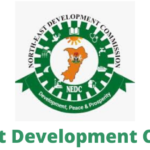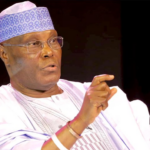In an article published in the Journal of Contemporary African Studies (JCAS) Vol. 114, No. 2, 1997, I equated the advocacy of zoning or rotational presidency with wilful rotation of mediocrity. I arrived at this conclusion after interrogating the state of Nigeria in the mid-1990s. That was at the height of military dictatorship. As critical issues were settled by military fiat, the state abandoned its service delivery functions in favour of patronage and rent seeking. The situation was so bad that scholars, among them, Larry Diamond, Richard Joseph and Jibrin Ibrahim, gave our country new, mostly unflattering, names, “un-civic society”, “rogue”, “prebendal”, “rentier” state, etc.
With what we witnessed under the military and with all that we have gone through over the past three decades, one would have expected Nigeria to have outgrown its fixation with an old nursery rhyme titled: Zoning. Even a child born in 1995 is by now an adult. That former child must by now be able to sing, if not write, a song that befits his/her age. But here we are, still stuck and stuttering on the first stanza of a kindergarten jingle.
- 2023: How zoning agreement was reached in APC – Caucus member
- Akeredolu’s quit order to herdsmen inflammatory – Presidency
Here is why we need a new song, but first let me state why I felt compelled to return to the old one. Last weekend, I read an online article in which a group from the South East was quoted as warning all aspirants to Nigeria’s presidency to back off. The group deemed it necessary to fire the warning shot because it believed that it was the turn of the South East, specifically, the Igbo, to produce the next occupant of the Aso Rock Villa.
My first reaction to the warning shot was to reach for the Constitution of the Federal Republic of Nigeria. I wished to educate myself on the section of the fundamental law which sanctioned the pre-emptive strike. Fortunately, we are a nation governed by law, not a banana republic pulled in different directions by individual whims and caprices. As I knew all along, zoning is a sneaky play on language, logic, and legality.
Check the dictionary, and you will discover that the meaning of zoning is different from that given to it in “geo-political” Nigeria. That is by the way. The substantive point is the logicality and legality of asking everyone to stand down so only a few can enjoy the rights meant for all. The legality of zoning is particularly questionable. In plain language, the Constitution of the Federal Republic of Nigeria has no room for zoning or “rotational presidency”. What it provides for in Section 14 (3) is the necessity to reflect Nigeria’s federal character in the composition of the government and its agencies. The aim of the federal character clause, as underscored in Section 14 (2) (c), is to ensure the participation of the people in their government.
I anticipated the possibility of zoning advocates pulling a fast one by reading into Section 14 (3) of the constitution what is not there, to wit, that federal character is sufficiently elastic to be stretched to mean rotational presidency. Section 14 (2) (c)’s accent on popular participation rules out that possibility. Still, to ensure that I am on the right track, I sought further advice from renowned legal practitioners. All those that I contacted summarily dismissed the equation of federal character with zoning or rotational presidency.
Needless to add that zoning or rotation is not part of the eligibility criteria set out in the constitution. As regard the office of the President, Head of State and Commander-in-Chief of the Armed Forces, Chapter VI, Section 131 of the 1999 Constitution stipulates that a person shall not be eligible to present his candidature unless: (a) he is a citizen of Nigeria by birth; (b) he has attained the age of forty years; (c) he is a member of a political party and is sponsored by that political party; and (d) he has been educated up to at least school certificate level or its equivalent.
Among those expressly barred by Section 137 of the constitution from vying for the office of president are lunatics and persons of unsound mind, as well as criminals sentenced to death or imprisonment. Also disqualified are candidates with dual citizenship, persons declared bankrupt, members of secret societies, currently serving public officials and candidates that present forged certificates to the Independent National Electoral Commission (INEC). Presidents that have served two terms cannot not run for a third term.
The import of the foregoing is that any Nigerian (Igbo, Hausa, Yoruba, Tiv, Efik, Bachama, Igala, Edo, Nupe or Kanuri, etc.,) who meets the constitutionally stipulated eligibility criteria cannot, for any other reason or under any pretext whatsoever, be disquieted should he/she decide to contest for the office of president.
By the way, how do the advocates of rotational presidency hope to pull it off? I do not see electors trooping to voting centres to express their preferences for rival candidates. What I see is an unelected group constituting itself into a council of kingmakers (a backdoor “electoral college”) to anoint a candidate of their choice. The risk of internal insurrection is high if the kingmakers’ choice does not match the preference of the majority or the ambitions of equally eligible and qualified rivals.
Even if the local kingmakers succeed in quelling any intra-zone insurrection, there is no guarantee that candidates from other zones will sit still and watch their constitutionally guaranteed rights trampled upon by other zones’ tribal elders. All such aggrieved persons need to do to defend their rights is institute legal proceedings drawing the courts’ attention to the constitutional provisions on eligibility and applying for perpetual injunction against egregious curtailment of their rights.
Now back to the question, whose turn is it? The constitution’s unequivocal answer is, it is nobody’s because it is everybody’s turn. Insofar as no citizenship is weightier than another, every Nigerian that meets the eligibility criteria is free to run. It does not matter whether the aspirant is Baruten, Urhobo, Kalabari, Ijaw, Tiv, Itsekiri, Berom, Kwara/Kogi Yoruba, or Hausa, Fulani, Igbo, or South West Yoruba. Every Nigerian has the right to dream of “tasting power” in his/her lifetime. Otherwise, what is the purpose of existence if not to fulfil one’s destiny and realise the fullest potential?
Nothing forbids a political party to “rotate” an elective position among geo-political zones. On the off chance that all its members acquiesce with this confiscation of rights, the political party concerned cannot go further to pre-empt or abridge its members’ suffrage rights. In other words, it may anoint one candidate, but it cannot compel the rank-and-file to vote for the candidate. The PDP anointed Olusegun Obasanjo in 1999, but the candidate’s South West zone firmly rejected him.
If I were to advise the South East, I would counsel against boxing candidates from the zone into a corner. I would go further to urge the zone’s opinion leaders to look far and wide for the best. Once the right candidate emerges, selling him/her to other zones will be a walk in the park. Whoever emerges from the headhunt should resist the temptation to fly a zonal or ethnic flag. An ethnic badge is never part of a winning strategy in a contest to be decided by a cross-ethnic alliance.
If an Igbo is interested in running for president, he/she should not only emerge on his/her own merit but should also proffer realistic answers to the daily concerns of voters in every zone. The candidate’s aim should be the aggressive mitigation of suffering in all parts of Nigeria. A Nigeria that works for all should be his/her overriding concern, not the recycling of mediocrity from one “ruling house” to another. The candidate should pledge to outlaw bad practices (like job allotments to VIPs, spurious vacancy announcements, bribery, and corruption), and to promote the cause of merit and inclusive governance. She should not be perceived as beholden to vested interests or held captive by godfathers and kingmakers.
Balogun is a former Special Adviser to the President of the United Nations General Assembly

 Join Daily Trust WhatsApp Community For Quick Access To News and Happenings Around You.
Join Daily Trust WhatsApp Community For Quick Access To News and Happenings Around You.


